The deep emerald water lake emerges amidst a beautifully surreal, untouched landscape. Known as The Eye of the Earth, or the Cetina Lake, it is a magnificent natural wonder gifted to Croatia by Mother Nature. This unique body of water is actually the source of the Cetina River, beginning from a spring in Milasevo near a small village called Cetina, 7km north of Vrlika, and is the richest watercourse in Dalmatia, flowing at the foot of Dinara, the highest mountain in Croatia.
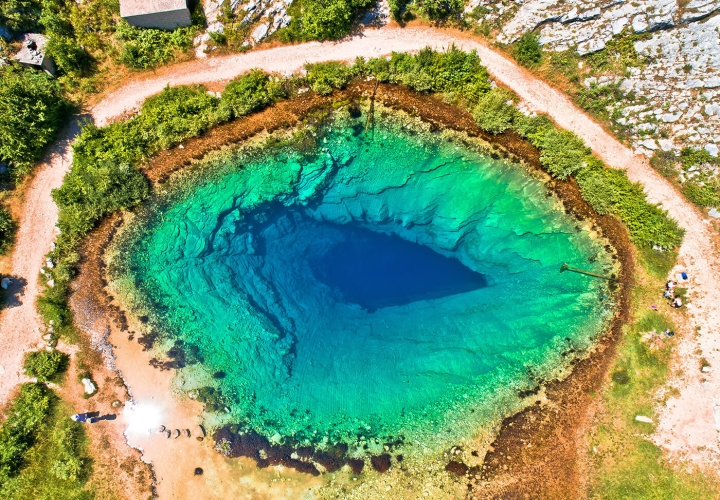
The river flows out of a deep cave approximately 115 meters deep and 15 meters in diameter. The water is crystal clear, making it a basic source of drinking water in the area. It is surrounded by small, ancient villages of great historical and archaeological importance. Since 1972, it has been a protected hydrological monument. It is undoubtedly a must-see destination for nature enthusiasts.
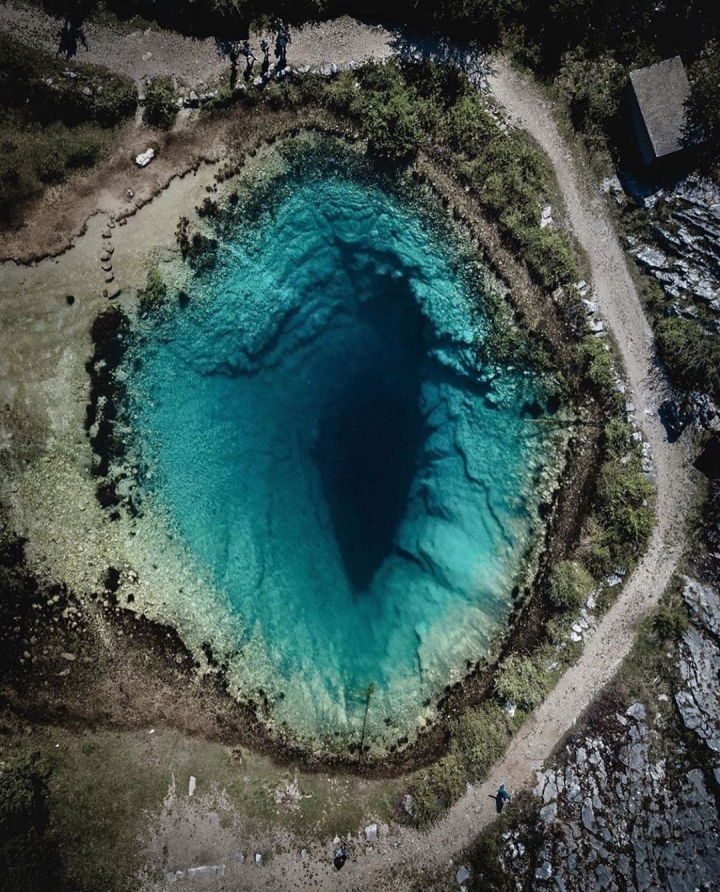
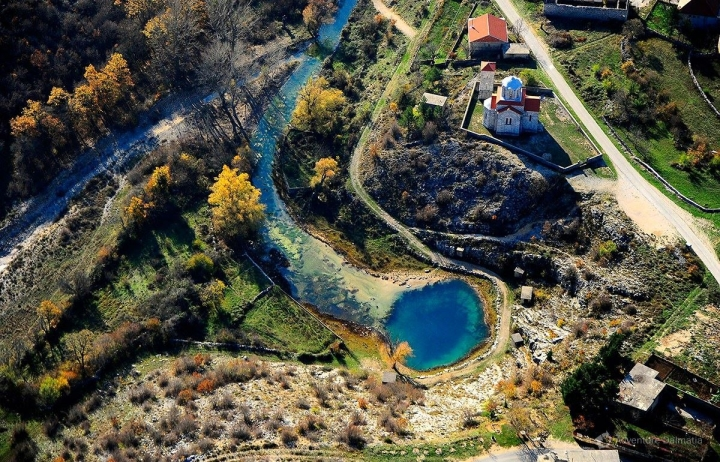
It is called “The Eye of the Earth” because of its shape, resembling an eye with varying shades of blue and green. From above, it is definitely one of the most special and attractive sights in the area. The magnificent beauty of this natural limestone mountain is indescribable.
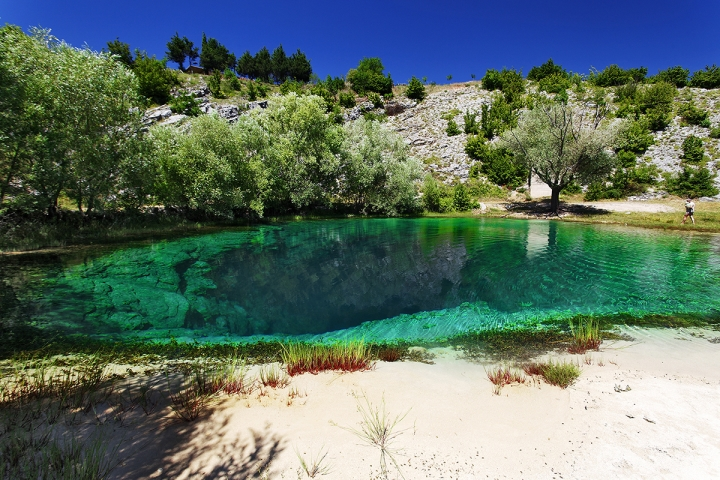
The clear blue water not only attracts tourists, but also serves as a wonderful habitat for many species of flora and fauna. Due to its considerable depth, the Cetina Lake is often visited by diving enthusiasts seeking a thrilling experience.
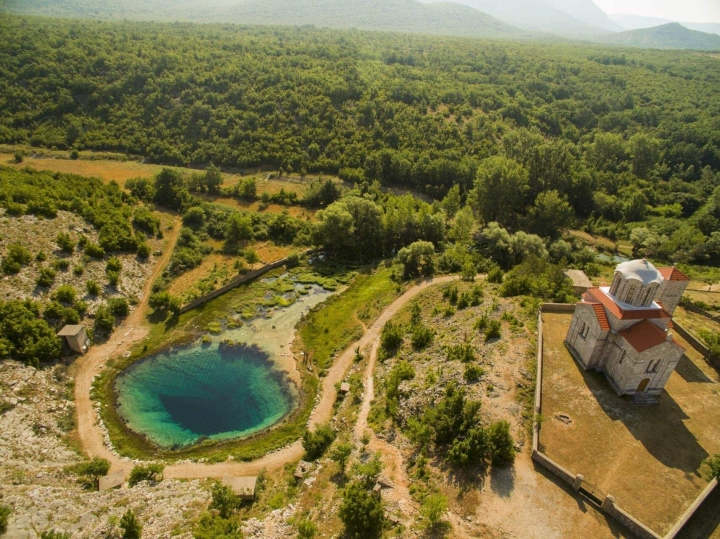
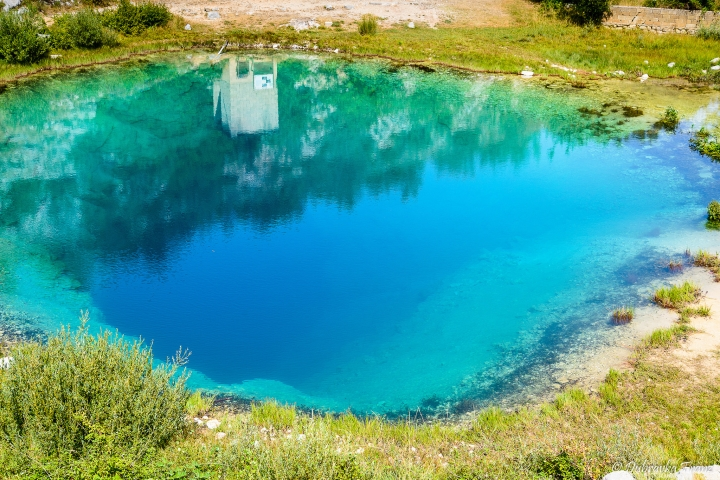
The water of the Cetina Lake is very cold, not exceeding 7°C, while the air temperature is usually around 40°C in summer. If you want to explore the depths of this lake, you need a diving suit made of synthetic rubber. The water here is so clear that tourists can dive and see the deep abyss beneath their feet, a sight that can leave you spellbound and goosebumps.
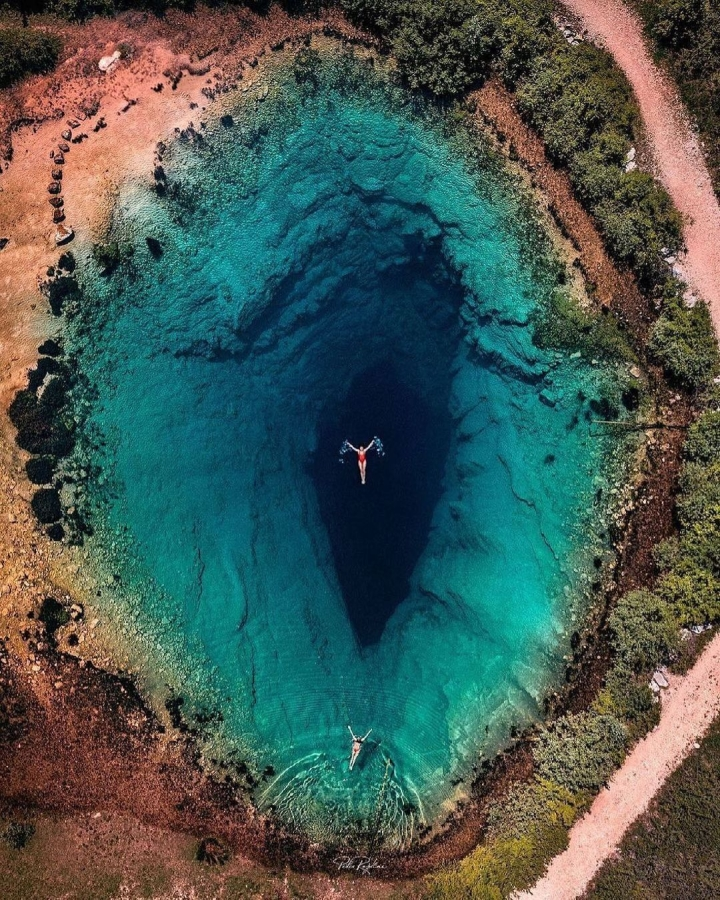
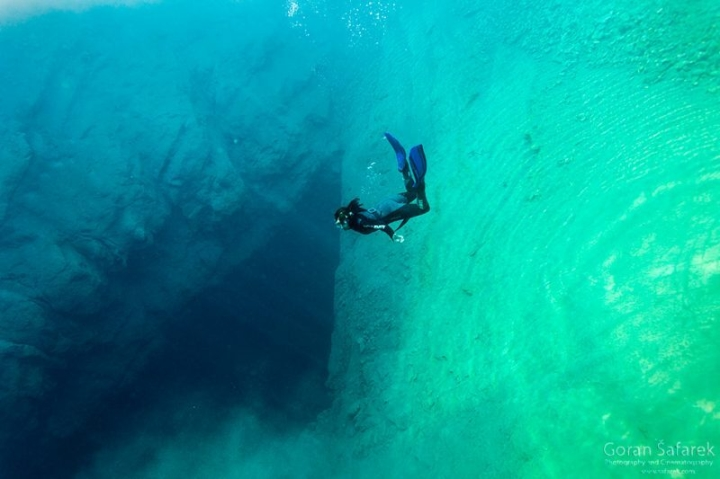
The Cetina Lake is located outside the main tourist routes, near the village of Cetina. Visitors can find the lake by following a straight road from an Orthodox church, a relic of one of the oldest churches in Croatia dating back to the 9th century.















